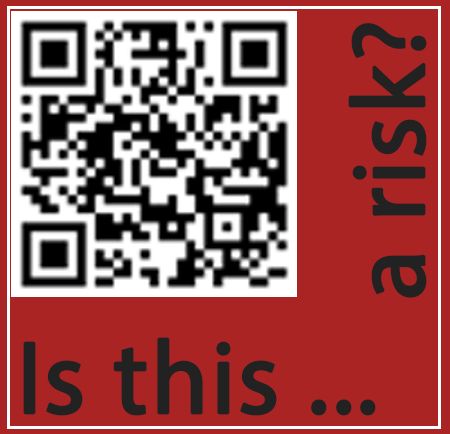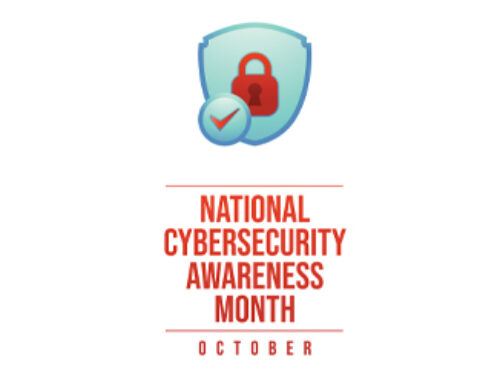
QR codes have quickly become a go-to tool for marketing, sales, payments, and customer service across numerous industries. However, as their use has grown, so too has their appeal to cybercriminals, who exploit QR codes for phishing attacks and malware distribution. These vulnerabilities can lead to serious financial and reputational damage, emphasizing the need for businesses to recognize and mitigate these risks proactively.
What Are QR Codes?
A Quick Response (QR) code is a two-dimensional barcode designed to store information, such as text, URLs, or contact details, in a series of black squares on a white background. Originally developed to track automotive parts, QR codes have expanded into various industries, making it easy to connect the physical and digital worlds. With smartphones now equipped with QR code readers, they are used for everything from marketing to ticketing and product labeling, making them a convenient tool for both businesses and consumers.
QR Code Risks
Despite their convenience, QR codes carry inherent risks because they can be exploited by malicious actors. Cybercriminals often create fraudulent QR codes that direct unsuspecting users to malicious websites, where sensitive information can be stolen or malware can be installed. The challenge lies in the fact that all QR codes look alike—appearing as random patterns of pixels—which makes it difficult to distinguish between safe and malicious codes. Additionally, QR codes used for payments or to access URLs can be easily tampered with, increasing the chances of encountering a fraudulent code.
For businesses and individuals, this means that vigilance is key. Failing to secure QR code use can lead to financial losses, data breaches, and damage to a company’s reputation.
How Fraudulent QR Codes Can Be Exploited
Cybercriminals can manipulate QR codes in various ways:
- Replacing or tampering with QR codes: Malicious actors may place counterfeit codes over legitimate ones or alter the original.
- Placing QR codes in high-traffic locations: Fraudulent QR codes may be placed in areas where they seem connected to a legitimate service, such as parking meters or public spaces.
- Sending fraudulent QR codes via email or app: Scammers often send fake QR codes disguised as trustworthy links, tricking recipients into scanning them.
Once a fraudulent QR code is scanned, several security issues can arise, including:
- Quishing: Phishing via QR codes, where cybercriminals steal credentials by leading users to fake websites.
- QRLjacking: Malware can be spread to a device when it accesses a malicious URL from a fake QR code.
- Device hacking: In some cases, hackers can take control of a device, enabling them to send texts, make calls, or even authorize payments without the user’s consent.
How to Mitigate QR Code Risks
As the use of QR codes by cybercriminals rises, businesses must take steps to reduce the associated risks. Here are some strategies:
- Educate employees: Regularly update staff on cyber threats and how to safely handle QR codes.
- Be cautious with scanning: Always double-check the URLs that QR codes lead to.
- Use security software: Employ content-filtering tools to scan links and block malicious sites.
- Enable multifactor authentication: This adds a layer of protection in case credentials are compromised.
- Limit QR code use in business communications: Reducing the number of QR codes in emails can decrease the chances of customers being targeted.
- Ensure devices are secure: Keep devices updated and turn off automatic QR code scanning.
Protecting Customers When Using QR Codes
If your business relies on QR codes, consider these best practices to safeguard your customers:
- Use a reputable QR code generator.
- Customize QR codes with company branding.
- Test QR codes before distribution.
- Ensure the linked website has strong encryption and displays SSL protection.
How Skyline IT Services Can Help
While QR codes offer numerous benefits, they can also be an entry point for cybercriminals seeking to steal credentials, insert malware, or compromise organizational security. The consequences can be severe, from financial losses to damage to your brand’s reputation. By adopting risk management strategies, businesses can better protect their operations, employees, and clients.
At Skyline IT Services, we’re ready to help you mitigate these risks. Our professional and accredited team is equipped to assist in optimizing your cybersecurity defenses, ensuring your organization is protected from emerging threats. Reach out today to start securing your business for the future.
Skyline IT Services Disclaimer: This document is intended to offer general information and guidance. It is recommended that you consult with your internal technical and / or legal team to review all details, application and / or policies before implementation. This document is provided “as is,” without any warranties of any kind. Skyline IT Services disclaims any liability for loss or damage arising from reliance on the information contained in this document.



